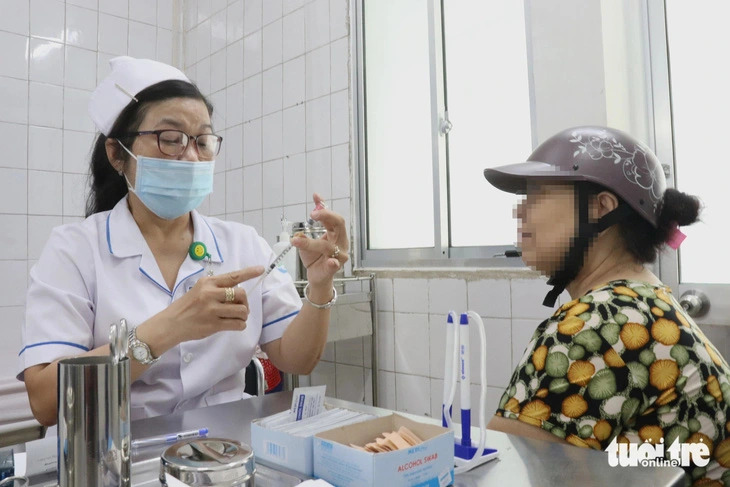Health authorities in Ho Chi Minh City have issued an urgent dispatch requiring all medical units and rabies vaccination facilities to promptly take measures to curb the disease that killed over 20 people in Vietnam in the first two months of this year.
In the emergency message issued on Wednesday, the Department of Health requested that all its units in districts and the city’s Center for Disease Control (HCDC) closely monitor suspected rabies cases, typically resulting from dog or cat bites, offer guidance on rabies vaccinations, and promptly address rabies outbreaks.
According to the Ministry of Health, rabies killed 22 people in Vietnam over the January-February period, compared to 10 cases recorded from a year ago.
The Ho Chi Minh City Pasteur Institute administered 4,813 rabies vaccinations in the same period, including 2,622 inoculations in February, far higher than the average of 2,100 per month in the first two months of 2023.
The Ho Chi Minh City Hospital for Tropical Diseases has also recorded a sharp increase in rabies immunization, with 5,296 cases in the first two months of this year compared to 4,221 from a year earlier.
During this timeframe, the hospital admitted seven patients with rabies, all of whom succumbed to the disease, contrasting with only two cases reported in the same period of 2023.
The department asked grassroots health authorities to coordinate with animal medicine facilities to timely provide information about cases of people bitten by dogs or cats having or seemingly having rabies.
The department also called for boosting communication about the dangers and consequences of rabies, alongside measures aimed at preventing and managing the disease, such as advocating for rabies vaccinations for both humans and animals.
People should be encouraged to promptly seek medical attention at healthcare facilities for examination, consultation, and rabies vaccination if bitten by dogs or cats suspected of having rabies.
The department tasked the HCDC with providing guidance, monitoring, and oversight of efforts to combat rabies in humans, as well as coordinating with the Sub-Department of Animal Husbandry and Veterinary Medicine under the city’s Department of Agriculture and Rural Development to promptly investigate and address outbreaks, aiming to prevent the transmission of rabies from animals to humans.
A week ago, Prime Minister Pham Minh Chinh issued an official dispatch urging efforts from the health sector and other agencies to prevent and control rabies nationwide.
According to statistics from the World Health Organization (WHO), rabies is estimated to cause 59,000 human deaths annually in over 150 countries, with 95 percent of the cases occurring in Africa and Asia.
WHO said dogs are the primary source of human rabies deaths, responsible for 99 percent of all transmissions to humans. Thus, preventing rabies can be achieved through vaccinating dogs and preventing dog bites.
Rabies is a vaccine-preventable, zoonotic, viral disease that affects the central nervous system, and once clinical symptoms of rabies appear, the disease is virtually 100 percent fatal, with children aged five to 14 making up 40 percent of the death toll, according to WHO.
The incubation period for rabies is typically two to three months, but may vary from one week to one year, depending on factors such as the location of virus entry and the viral load.
The first symptoms of rabies may be similar to the flu, including weakness or discomfort, fever, or headache, but patients may have discomfort, prickling, or an itching sensation at the site of the bite, the U.S. Centers for Disease Control and Prevention (CDC) said.
These symptoms may last for days before progressing to cerebral dysfunction, anxiety, confusion, and agitation.
As the disease progresses, patients may experience delirium, abnormal behavior, hallucinations, hydrophobia (fear of water), and insomnia before death, CDC stated.
Like us on Facebook or follow us on Twitter to get the latest news about Vietnam!






















































